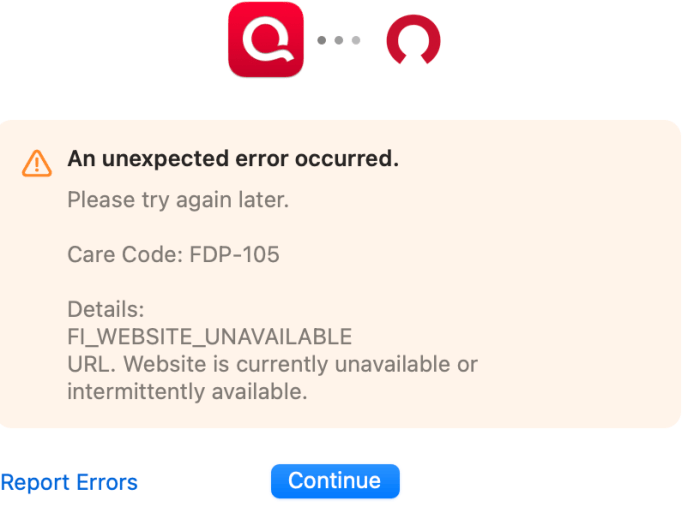Is Rocket Mortgage a bank? This question delves into the complexities of the modern mortgage industry, where technology and traditional banking models intertwine. Rocket Mortgage, a prominent player in the US mortgage market, operates differently than a traditional bank, focusing on a streamlined, technology-driven approach to loan origination and servicing. Understanding its business model, regulatory status, and financial structure is crucial to discerning its true nature and how it compares to established financial institutions.
This analysis will explore Rocket Mortgage’s operations, comparing them to traditional banks across key aspects to answer this central question.
We’ll examine Rocket Mortgage’s revenue streams, regulatory compliance, financial stability, customer interactions, risk management, technological infrastructure, and market position. By comparing these elements to those of a traditional bank, we aim to provide a comprehensive understanding of Rocket Mortgage’s unique position within the financial landscape and definitively answer whether it functions as a bank in the traditional sense.
Rocket Mortgage’s Business Model
Rocket Mortgage, a subsidiary of Rocket Companies, operates as a large digital mortgage lender. Its business model centers on leveraging technology to streamline the mortgage process, offering a largely online experience to borrowers. This contrasts sharply with the traditional brick-and-mortar approach of many banks.
Core Operations and Revenue Streams

Source: workingsolutionsnyc.com
Rocket Mortgage’s core operations revolve around originating and servicing mortgages. Revenue is primarily generated through origination fees, interest earned on servicing mortgage loans, and potentially through ancillary services like title insurance or closing costs. The company focuses on efficiency and automation to minimize operational costs and maximize profitability.
Mortgage Origination and Servicing Processes
Rocket Mortgage utilizes a largely digital platform for mortgage origination, from application to closing. Borrowers complete applications online, upload documents, and receive updates through the platform. Post-closing, Rocket Mortgage services the loans, collecting payments, managing escrow accounts, and handling customer inquiries. This integrated digital approach differentiates them from traditional banks with more manual processes.
Comparison to Traditional Banks

Source: v-cdn.net
Unlike traditional banks that offer a wider range of financial services, Rocket Mortgage primarily focuses on mortgages. Banks often have a broader network of physical branches and a more diversified revenue stream including deposits, loans, and investment products. Rocket Mortgage’s specialization allows for greater focus and efficiency in mortgage lending.
Rocket Mortgage vs. Traditional Bank Services
| Company | Service | Features | Cost |
|---|---|---|---|
| Rocket Mortgage | Mortgage Origination | Online application, digital document upload, fast closing | Origination fees, interest rates |
| Traditional Bank | Mortgage Origination | In-person application, potential for longer closing times | Origination fees, interest rates (may vary) |
| Rocket Mortgage | Mortgage Servicing | Online account management, automated payments | Servicing fees (often included in interest rate) |
| Traditional Bank | Mortgage Servicing | In-person or phone support, potential for manual processes | Servicing fees (may vary) |
Rocket Mortgage’s Regulatory Status
Rocket Mortgage operates under a complex regulatory framework, primarily at the state level as a mortgage lender. Federal regulations also apply to aspects of its operations, particularly concerning fair lending practices and consumer protection.
Licensing and Regulatory Oversight
Rocket Mortgage holds licenses in multiple states to operate as a mortgage lender. These licenses are subject to ongoing compliance requirements and regular audits by state regulatory authorities. Federal agencies like the Consumer Financial Protection Bureau (CFPB) also oversee aspects of its operations related to consumer protection and fair lending.
Legal Frameworks Governing Operations
Rocket Mortgage’s operations are governed by a mix of federal and state laws related to mortgage lending, consumer protection, and fair housing. These laws dictate aspects such as licensing requirements, disclosure rules, underwriting standards, and servicing practices.
Regulatory Differences from Federally Chartered Banks
Federally chartered banks are subject to a more extensive and centralized regulatory framework, overseen by federal agencies like the Office of the Comptroller of the Currency (OCC) and the Federal Reserve. Rocket Mortgage, as a non-bank lender, faces a more decentralized regulatory landscape, with oversight primarily at the state level.
Regulatory Compliance Measures
Rocket Mortgage employs various compliance measures, including regular internal audits, employee training programs, and robust documentation processes to ensure adherence to all applicable regulations. They maintain comprehensive compliance programs to mitigate risks and avoid penalties.
Rocket Mortgage’s Financial Structure
Rocket Mortgage’s financial structure involves a complex interplay of funding sources to support its mortgage lending activities. Its financial stability is crucial to its ability to provide loans and maintain its market position.
Capital Structure and Funding Sources
Rocket Mortgage secures funding through various channels, including issuing debt securities, accessing capital markets, and retaining earnings. The specific mix of funding sources can fluctuate based on market conditions and business needs.
Funding Mortgage Loans
Rocket Mortgage funds its mortgage loans primarily by selling them to investors in the secondary mortgage market, such as government-sponsored enterprises (GSEs) like Fannie Mae and Freddie Mac. This process allows Rocket Mortgage to recycle capital and originate more loans.
Financial Stability Compared to Major Banks
While Rocket Mortgage’s financial stability is generally considered strong, it differs from that of major banks due to its more focused business model. Banks have more diversified revenue streams and larger capital bases. Rocket Mortgage’s financial health is closely tied to the performance of the mortgage market.
Key Financial Metrics
- Origination volume: Indicates the total value of mortgages originated.
- Net interest margin: Shows the difference between the interest earned on loans and the interest paid on borrowed funds.
- Return on equity (ROE): Measures profitability relative to shareholder equity.
- Debt-to-equity ratio: Indicates the proportion of debt financing in the capital structure.
Customer Interactions and Services
Rocket Mortgage distinguishes itself through its digital-first approach to customer interaction, contrasting with the traditional in-person service offered by many banks. This digital emphasis impacts all aspects of the customer journey.
Customer Experience Comparison
Rocket Mortgage prioritizes a fast, convenient, and largely digital customer experience. Traditional banks often involve more paperwork, in-person visits, and potentially longer processing times. Rocket Mortgage’s speed and ease of use are key differentiators.
Customer Service Channels
Rocket Mortgage offers various customer service channels, including a comprehensive online platform, phone support, and email. The effectiveness of these channels varies depending on the specific issue and the customer’s technical proficiency. The online platform aims to provide self-service solutions.
Account Management Differences
Account management with Rocket Mortgage is primarily digital, with online access to loan details, payment options, and communication tools. Traditional banks offer a mix of digital and in-person account management options, depending on the customer’s preference and the specific service.
Impact of Digital Platform
Rocket Mortgage’s digital platform significantly impacts customer interaction by providing a seamless, 24/7 accessible experience. This allows for faster processing, increased transparency, and improved convenience for borrowers.
Risk Management and Lending Practices: Is Rocket Mortgage A Bank
Rocket Mortgage faces various risks inherent in the mortgage lending business. Effective risk management strategies are crucial to its long-term success and financial stability.
Key Business Risks
Key risks include interest rate fluctuations, changes in the housing market, credit risk (borrower defaults), regulatory changes, and operational risks.
Risk Mitigation Strategies
Rocket Mortgage employs various risk mitigation strategies, including rigorous underwriting standards, diversification of its loan portfolio, and hedging against interest rate risk. They also invest in robust technology and security measures to minimize operational risks.
Underwriting Standards Comparison
Rocket Mortgage’s underwriting standards are generally comparable to those of traditional banks, although the specific criteria and processes may differ due to its digital focus. Both prioritize assessing borrower creditworthiness and ensuring loan repayment ability.
Loan Portfolio Management and Credit Risk Assessment
Rocket Mortgage actively manages its loan portfolio by monitoring borrower performance, employing predictive modeling to assess credit risk, and implementing strategies to mitigate potential losses. This involves careful selection of borrowers and ongoing monitoring of loan performance.
Technological Infrastructure
Rocket Mortgage’s technological infrastructure is a core component of its business model, enabling efficient operations and a superior customer experience. Its technological capabilities are a key differentiator in the competitive mortgage lending market.
Role of Technology in Operations
Technology underpins virtually every aspect of Rocket Mortgage’s operations, from loan origination and processing to customer service and risk management. Automation and digital tools streamline processes, reduce costs, and enhance efficiency.
Impact on Efficiency and Customer Experience
Technology has dramatically improved Rocket Mortgage’s efficiency and customer experience. The digital platform allows for faster processing times, increased transparency, and improved communication with borrowers. This results in a more convenient and user-friendly experience.
Technological Capabilities Compared to Traditional Banks
Rocket Mortgage’s technological capabilities are generally more advanced than those of many traditional banks, particularly in terms of automation and digital integration. This allows for a more streamlined and efficient lending process.
Key Technologies Used
- Artificial intelligence (AI): For automated underwriting and risk assessment.
- Machine learning (ML): To improve efficiency and accuracy in various processes.
- Cloud computing: For scalability and data management.
- Data analytics: To gain insights into market trends and customer behavior.
- Secure digital platforms: For safe and convenient customer interactions.
Market Position and Competition
Rocket Mortgage holds a significant position in the competitive mortgage lending market, competing with both traditional banks and other large digital lenders. Understanding its competitive advantages and strategies is key to assessing its future prospects.
Main Competitors
Rocket Mortgage competes with major banks such as Wells Fargo, JPMorgan Chase, and Bank of America, as well as other large digital mortgage lenders like Better.com and LoanDepot.
Market Share and Competitive Advantages, Is rocket mortgage a bank
Rocket Mortgage has a substantial market share in the digital mortgage lending space, driven by its technological advantages, efficient processes, and strong brand recognition. Its digital-first approach provides a key competitive advantage.
Pricing Strategies and Loan Products
Rocket Mortgage’s pricing strategies are generally competitive with those of its competitors, although specific rates and fees can vary based on factors like loan type, credit score, and market conditions. They offer a range of loan products to cater to diverse borrower needs.
Differentiation from Other Lenders
Rocket Mortgage differentiates itself through its fully digital platform, streamlined processes, and focus on speed and convenience. This contrasts with the more traditional, often slower, approaches of many banks and other lenders. Their user-friendly interface and technological sophistication are key differentiators.
While Rocket Mortgage isn’t a bank in the traditional sense, it’s a mortgage lender. Understanding the differences between mortgage lenders and banks like those found by researching cit bank onewest bank helps clarify Rocket Mortgage’s role. Essentially, Rocket Mortgage facilitates the loan process, often working with various banks to secure funding for its customers, thus impacting how one might perceive its financial structure.
Last Recap
In conclusion, while Rocket Mortgage operates within the financial services sector and facilitates mortgage lending, it’s not a bank in the traditional sense. Its business model, heavily reliant on technology and a streamlined digital process, distinguishes it from federally chartered banks. While it faces similar regulatory oversight, its financial structure and operational approach differ significantly. Understanding these differences is crucial for consumers and industry professionals alike to accurately assess Rocket Mortgage’s role and its impact on the mortgage market.
The company’s focus on technology and efficiency has undeniably reshaped the mortgage lending landscape, but its classification remains distinct from that of a traditional banking institution.